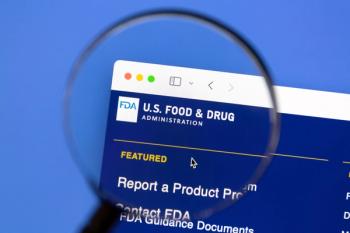
- April 2014 Allergy & Asthma
- Volume 80
- Issue 4
Eating Food Allergens During Pregnancy May Decrease Allergy Risk in Kids
Women in early pregnancy who eat foods to which children are commonly allergic may help reduce their child's risk for allergies and asthma, suggest the results of a recent study.
Women in early pregnancy who eat foods to which children are commonly allergic may help reduce their child’s risk for allergies and asthma, suggest the results of a study published online on February 11, 2014, in the Journal of Allergy and Clinical Immunology.
The researchers of the study evaluated associations between (1) maternal intake of peanuts, milk, wheat, and other common childhood food allergens during the first and second trimesters of pregnancy and (2) childhood allergy and asthma among 1277 mother-child pairs. Women completed food frequency questionnaires during pregnancy and questionnaires about food allergy, asthma, allergic rhinitis, and atopic dermatitis when their children were aged about 8 years on average.
The results indicated that increased maternal intake of food allergens reduced children’s risk of developing allergies. Higher maternal peanut intake during the first trimester was associated with a 47% reduced risk for peanut allergies among children. In addition, increased milk intake among mothers during the first trimester was associated with a reduced risk for both asthma and allergic rhinitis, while higher wheat intake during the second trimester was associated with reduced atopic dermatitis among children. The results also found that peanut, wheat, and soy allergies were each associated with an increased risk for childhood asthma, atopic dermatitis, and allergic rhinitis.
Articles in this issue
almost 12 years ago
Nurses Exposed to Cleaning Products at Increased Asthma Riskalmost 12 years ago
Teens Motivated by Vanity to Use Sunscreenalmost 12 years ago
Young Skin Cancer Survivors at Increased Risk for Other Cancersalmost 12 years ago
Patients with Dermatologists More Likely to Catch Melanoma Earlyalmost 12 years ago
Can You Read These Rxs?almost 12 years ago
Case Studiesalmost 12 years ago
Pet Peevesalmost 12 years ago
Smoking Cessation: Overcoming Nicotine Dependencealmost 12 years ago
Food Allergies Substantially Increasing Among Black Childrenalmost 12 years ago
Incidence of Allergies Similar Across CountryNewsletter
Stay informed on drug updates, treatment guidelines, and pharmacy practice trends—subscribe to Pharmacy Times for weekly clinical insights.


























